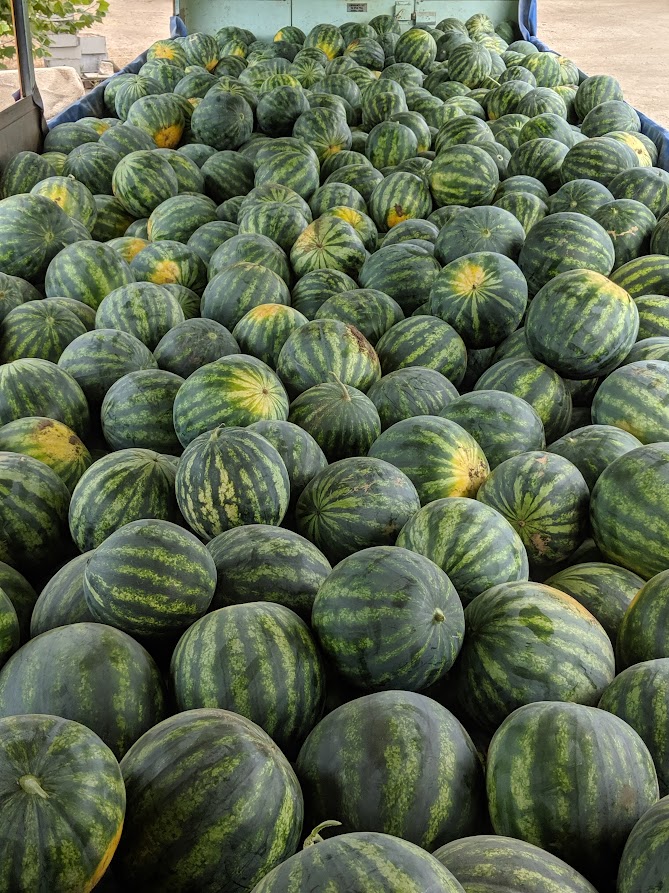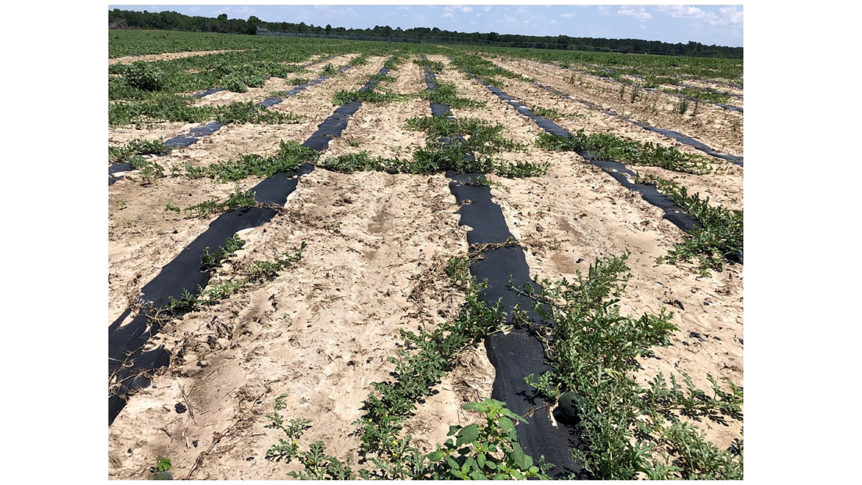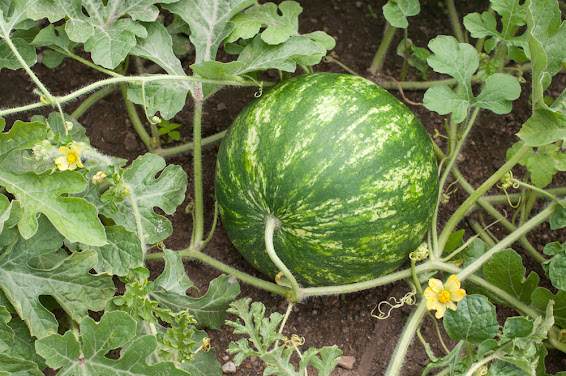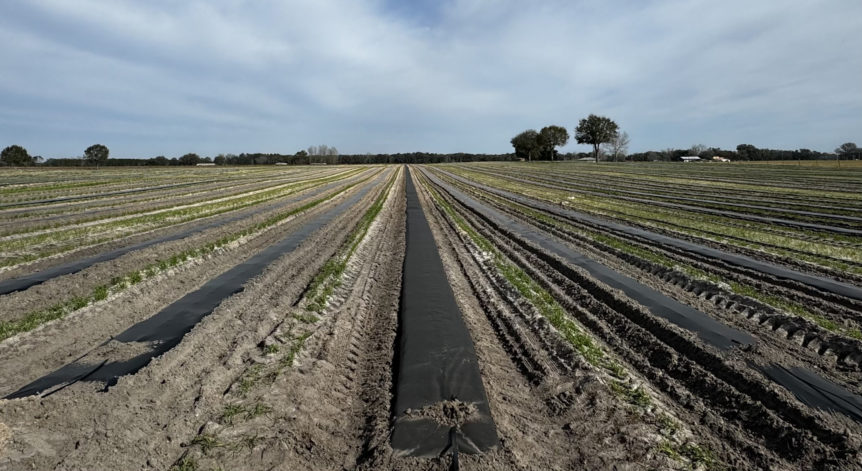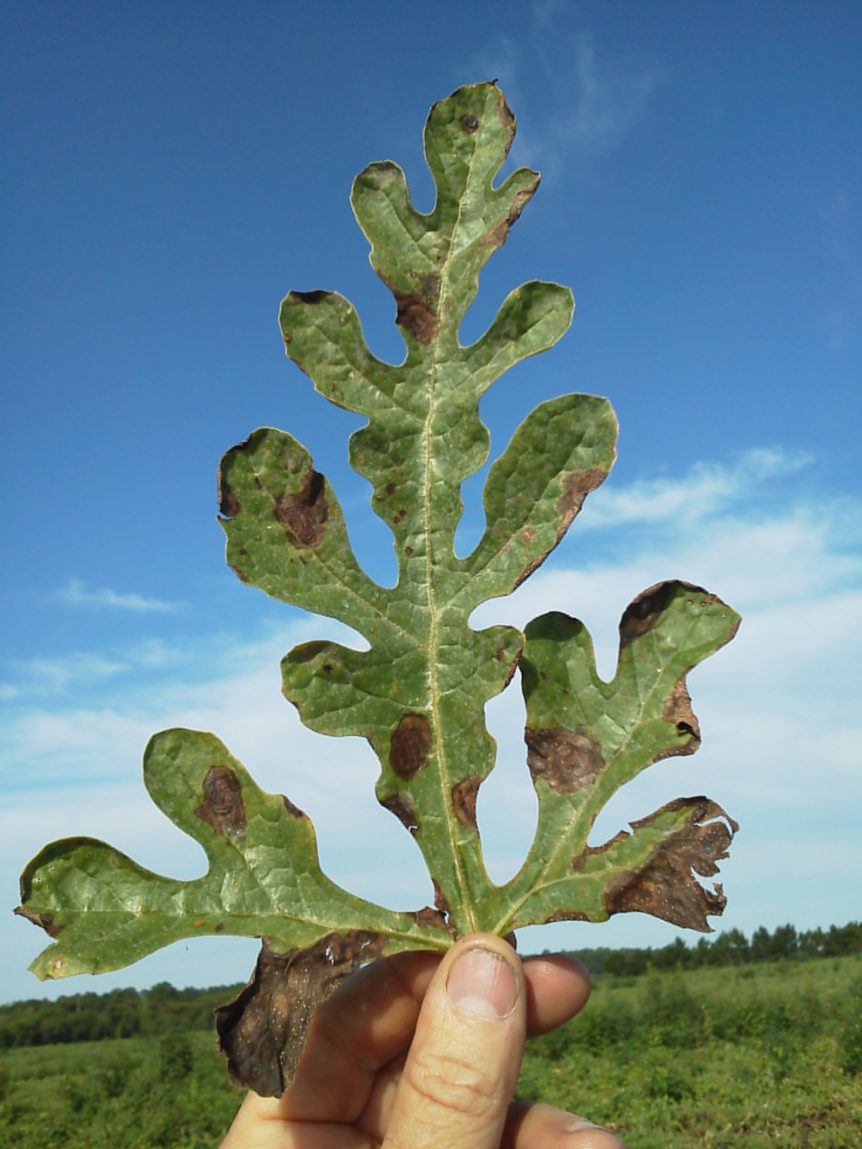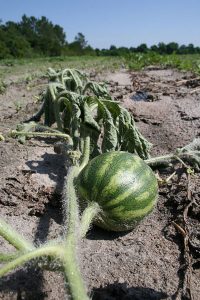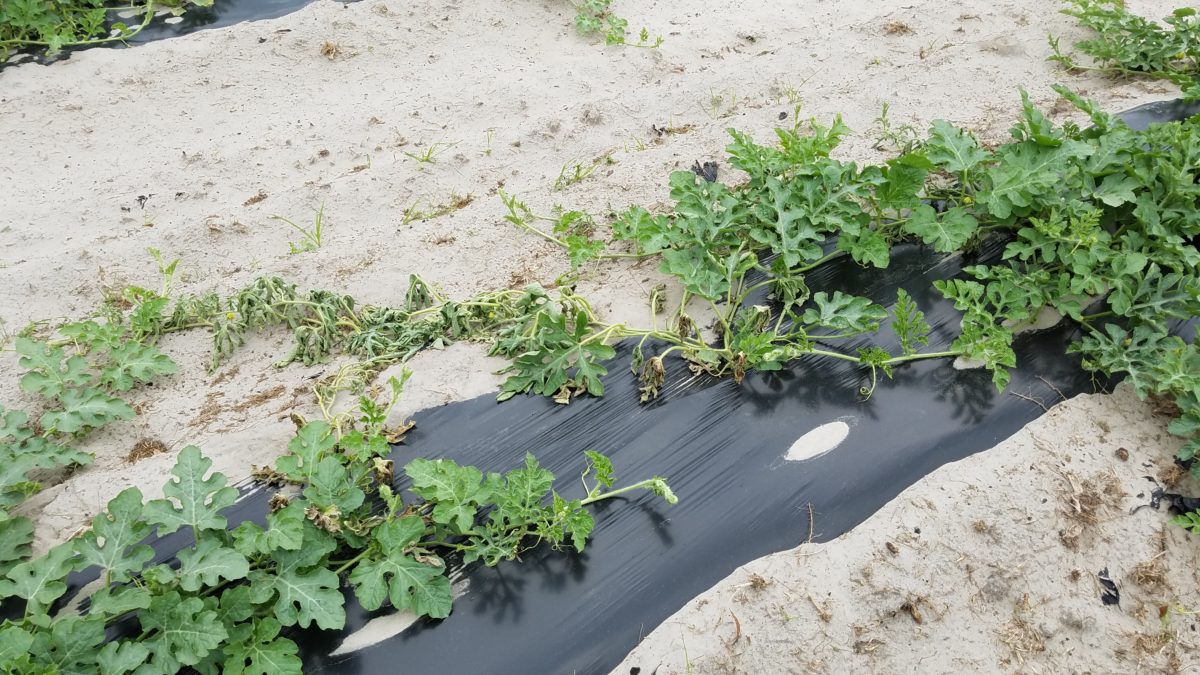By Clint Thompson South Georgia watermelon producers are behind in their plantings this spring, according to one University of Georgia Extension county agent. Excessive rains are the reason why, said John Bennett, Wilcox County Extension Coordinator. “We really just got going good with our plants (last week). A lot of guys poked plants in starting Monday. We’re probably 7 to …
Fusarium Wilt Observed in North Florida Melons
North Florida watermelon producers should be wary that Fusarium wilt symptoms have been observed in some fields, according to Bob Hochmuth, University of Florida Institute of Food and Agricultural Sciences (UF/IFAS) Regional Specialized Extension agent in Live Oak, Florida. His weekly email included an alert that a “high percentage of plants in parts of fields have shown wilting.” “You may …
New Study Shows Key Strategies for Merchandising Watermelon
The National Watermelon and Promotion Board (NWPB) has announced the release of its most recent consumer research and Marketing Guide that will arm producers with information to make strategic decisions and build awareness of the opportunities within the watermelon industry. The study is entitled, “Watermelon Attitudes and Usage Research.” It delves into consumer thought patterns centered around watermelons. Its focus …
What’s Next? Management Tips for North Florida Watermelon Producers
By Clint Thompson Watermelon plants are in the ground throughout North Florida. Growers are now tasked with ensuring their plants are protected and cared for over the next couple of months. Bob Hochmuth, University of Florida Institute of Food and Agricultural Sciences (UF/IFAS) Regional Specialized Extension agent in Live Oak, Florida, provides some management tips for producers. “We want to …
UF/IFAS Extension Agent: North Florida Watermelon Acres Up At Least 10%
By Clint Thompson North Florida watermelon producers have the majority of this year’s crop in the ground … and there is a lot of it following a substantial increase in acres. “I think the consensus is there is an increase in acreage in this vicinity. Exactly how much? It seems like it’s 10% more,” said Bob Hochmuth, University of Florida …
Georgia Melon Planting Season About to Start
By Clint Thompson Georgia watermelon producers are on the cusp of planting this year’s crop. How many acres that equates to remains a question mark. “In general, I’ve heard that acreage is going to be increased this year,” said Tim Coolong, associate professor in the University of Georgia College of Agricultural and Environmental Sciences. “I talked to a few (growers) …
El Niño Effect: North Florida Melon Producers Be Wary of Potential Disease Buildup
By Clint Thompson Persistent rains in the North Florida region amid the current El Niño weather pattern is a potential concern for the region’s watermelon producers. But as long as growers stay on top of their fungicide applications, any disease inoculum should be controlled, believes Bob Hochmuth, University of Florida Institute of Food and Agricultural Sciences (UF/IFAS) Regional Specialized Extension …
Planting Season for North Florida Watermelons
By Clint Thompson The calendar may say Feb. 20 but for some watermelon growers in North Florida, it says it is planting time. “I believe that there are some that intend on starting around (Feb. 20) if the weather looks good during that period of time,” said Bob Hochmuth, University of Florida Institute of Food and Agricultural Sciences (UF/IFAS) Regional …
Carolina Strongback Rootstock Costly but Effective Option Against Fusarium Wilt
By Clint Thompson A costly but effective option for watermelon producers hoping to overcome fusarium wilt disease is the use of Carolina Strongback rootstock. Bhabesh Dutta, University of Georgia Extension vegetable pathologist, spoke about the rootstock during the Southeast Regional Fruit and Vegetable Conference. He talked about its success in research trials on the UGA Tifton Campus. “This is our …
Melon Producers Beware: El Niño, Early Plantings Could Lead to Increased Fusarium Wilt Disease
By Clint Thompson North Florida watermelon producers should be wary of increased potential for fusarium wilt disease with planting season looming. The current El Niño weather pattern is offering cooler temperatures and wetter conditions, says Nick Dufalt, a plant pathologist with the University of Florida Institute of Food and Agricultural Sciences. “I think being cooler always promotes fusarium wilt. Having …










